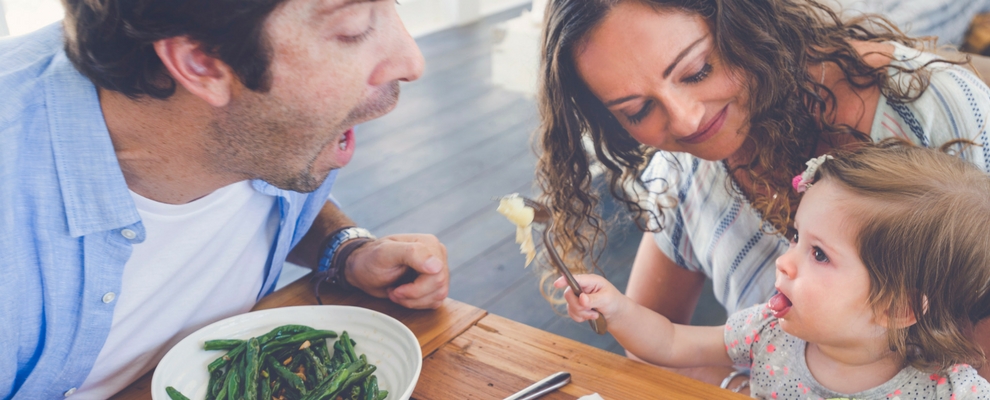Making sense of life with a new born
Health & Wellbeing -
You’ve spent 9 months thinking about what it will be like when your little one arrives; what will they look like, how will your lives change, what sort of parents will you be? In the days and months after the birth, looking after the newest addition to your family can become all-consuming. Learning how to care for your baby is a full-time role and often the wellbeing of parents is not given the attention it needs.
With postnatal depression affecting possibly 1 in every 7 women who give birth in Australia, and up to a possible 1 in 10 new dads experiencing depression during the pregnancy or after the birth, it’s essential to be aware of your own and your partner’s mental health, and have strategies in place to help navigate and enjoy your new family dynamic.
While it’s impossible to know exactly how you and your partner will feel after the birth it’s helpful to have some insight into common issues many new parents experience and ways they’ve worked through them.
Stay connected
When focus shifts to the baby parents can struggle with feelings of isolation and feel unsupported and disconnected.
Being disconnected from work, social groups, family, or even your partner can have a significant impact so it’s important to make our own wellbeing a priority.
A strong support network is vital to helping ensure you don’t feel overwhelmed. Staying socially connected is important, especially for stay at home parents which can be quite isolating.
Joining a local parents’ group is a great way to meet other people who may be experiencing similar post-natal issues and milestones and for maintaining social interaction with adults. Reaching out to friends and family and accepting any offers of help will go a long way in making you feel supported.
Find the balance
While external support is invaluable, it’s also vital that you focus on self-care. It’s important for anybody at any stage to maintain a focus on exercise, diet and sleep. For new parents, it does take quite a bit of effort – especially if the little one is not sleeping – but it really needs to be a priority.
So even if it’s only an hour or so each week try to support each other in having the time to sleep and exercise. Going for a swim, taking a yoga class or having a few hours of uninterrupted sleep can go a long way in helping you feel relaxed and re-energised.
Stress less
Being aware of and prepared for the impact of changes to your financial situation prior to giving birth will also help you to plan for your new family and to alleviate any financial stressors. Things to consider include unforeseen medical costs or illnesses and any loss of work, and ensuring you have the right health and Income Protection Insurance in place will go a long way to minimising these concerns.
Carve out some couple time
Taking the time to focus on your relationship as a couple is key to staying connected with each other and feeling supported. Parents often say they were unprepared for the changes to their relationship with their partners.
A new mother’s focus on protecting and caring for her child and healing from the birth, which can leave their partner feeling neglected,while the new mother can resent her partner being able to ‘escape’ to an office leaving her alone to care for the baby.
Scheduling in some ‘you’ time and some ‘couple’ time if only for a couple of hours a week can make a dramatic difference to your mental health. It gives you a chance to focus on yourself and each other and reconnect.
Becoming a parent is full of a range of emotions and taking the time to check in on each other is sometimes neglected. Where possible, have a date night, go for a walk together, go see a movie. The connection with a partner can be a great resource to help us through the challenging times of parenthood.
Give yourself a break
Taking time out is another way to take care of yourself. This can often be associated with guilt, however taking time out can give the other parent or carer some valuable one on one time. Ideally this is a structured event within the week; if not structured, it can easily be something we forget.
Finally, go easy on yourself. Parents can sometimes place high expectations on themselves but it’s important to remember that not everything will go to plan. You will make mistakes, everybody does, so be kind to yourself and your partner.
Some of the more common signs that a new mum may be experiencing postnatal depression include feeling anxious or panicky and worrying excessively about the baby, while for dads things to look out for include feelings of irritability, isolation and anger.
If you feel as though you or your partner are experiencing signs of depression your GP will be able to offer advice or you can access information and support from Perinatal Anxiety & Depression Australia (PANDA) via their website or helpline.
All of the information above should be considered general in nature, and in no way interpreted as financial or legal advice. You should always seek your own independent legal, accounting and financial advice before setting up family tax structure structures or acting on any of the above information.
TAL insurance products are issued by TAL Life Limited ABN 70 050109 450 AFSL 237848 and distributed by TAL Direct Pty Limited ABN 39 084 666017 AFSL 243260.
